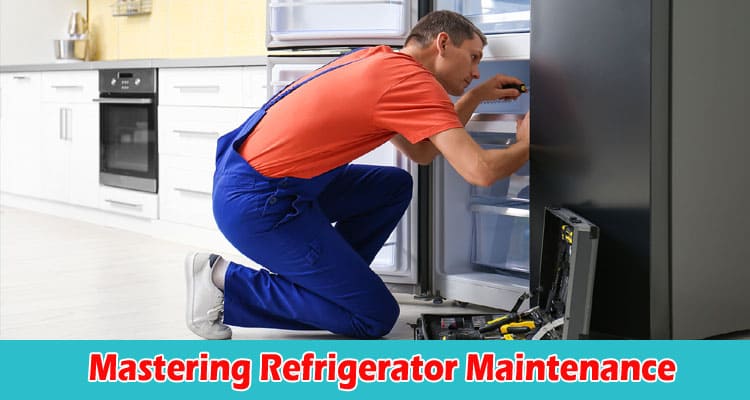In the intricate realm of household appliances, the refrigerator emerges as a towering cornerstone of daily living. With precision, it diligently preserves our food, keeps beverages chilled, and ensures perishables remain fresh. Yet, akin to any mechanical marvel, refrigerators are susceptible to malfunctions, requiring the expertise of appliance repair. In this guide, we embark on a journey into the most prevalent refrigerator problems, providing practical solutions and preventive measures to sustain this essential appliance. Our focus extends beyond mere issue resolution, aiming to foster a proactive approach to refrigerator care through the lens of appliance repair expertise.
Navigating Refrigerator Woes
Before exploring common refrigerator problems and their solutions, it’s crucial to understand that timely intervention and preventive measures can save not only inconvenience but also potential repair costs. Addressing issues promptly and adopting a preventive mindset can significantly extend the lifespan of your refrigerator.
Common Refrigerator Problems and Solutions
Let’s unravel the intricacies of common refrigerator problems and their solutions through a structured table:
| Problem | Symptom | Solution |
| Temperature Fluctuations | Inconsistent temperature settings leading to variations in the refrigerator and freezer compartments. | Adjust thermostat settings, ensure proper airflow, and clean condenser coils regularly. |
| Leaking Water | Puddles of water around or inside the refrigerator. | Check water supply line and defrost drain for blockages. Replace a damaged water inlet valve. Clean the drain periodically. |
| Excessive Frost Buildup | Excessive frost in the freezer compartment, affecting cooling efficiency. | Check door seals for gaps or damage. Inspect defrost system components: heater, thermostat, and timer. |
| Unusual Noises | Strange or loud noises emanating from the refrigerator. | Check for loose or vibrating components such as condenser fan, evaporator fan, or compressor. Seek professional attention if noise persists. |
| Faulty Ice Maker | Inconsistent ice production or no ice at all. | Inspect water inlet valve, supply line, and ice maker assembly. Replace faulty components. Regularly clean the ice maker and ice bin. |
| Door Seal Issues | The refrigerator door doesn’t seal properly, leading to temperature fluctuations. | Inspect door seals for wear or damage. Replace compromised seals. Ensure doors close tightly, and seals create a proper seal when closed. |
| Condensation Inside the Fridge | Excessive condensation inside the refrigerator, leading to wet shelves and food. | Check door seals for gaps or damage. Adjust humidity settings if available. Ensure food containers are adequately covered to minimize moisture. |
Preventive Measures for a Healthy Refrigerator
In addition to addressing specific issues, adopting preventive measures can significantly contribute to the overall health and longevity of your refrigerator:
| Preventive Measure | Tip |
| Regular Cleaning | Periodically clean the interior, shelves, and drawers of your refrigerator. Remove expired items to maintain optimal storage conditions. |
| Condenser Coil Maintenance | Clean the condenser coils at least twice a year to ensure efficient heat exchange and cooling. |
| Proper Food Storage | Store food items in airtight containers to prevent odors from spreading and minimize moisture inside the refrigerator. |
| Optimal Temperature Settings | Set the refrigerator temperature between 35°F and 38°F (1.7°C and 3.3°C) and the freezer temperature between 0°F and 5°F (-17.8°C and -15°C) for optimal freshness and efficiency. |
| Gentle Door Handling | Avoid slamming the refrigerator doors. Gentle handling prevents wear on the door seals, ensuring a proper seal for efficient cooling. |
| Regular Inspection of Components | Periodically inspect components like door seals, hinges, and fans. Replace any damaged parts promptly to maintain the refrigerator’s integrity. |
When to Seek Professional Help
While addressing common refrigerator problems can often be done with DIY solutions, some issues may require professional expertise. Consider seeking professional appliance repair assistance in the following situations:
- Compressor Issues: If the compressor, a critical component responsible for refrigeration, is malfunctioning, it requires professional diagnosis and repair.
- Refrigerant Leaks: Handling refrigerants is hazardous, and detecting and repairing leaks should be left to qualified technicians.
- Electrical Problems: If you experience electrical issues like frequent tripping of the circuit breaker, it’s best to consult a professional to avoid electrical hazards.
- Complex Repairs: For complex issues involving electronic control boards or internal components, a professional appliance repair service is recommended.
Conclusion
In the realm of household appliances, the refrigerator stands as a testament to modern convenience. By understanding common problems and adopting preventive measures, you can ensure its continued efficiency and longevity. Timely intervention and a proactive approach to maintenance not only address issues promptly but also contribute to cost savings in the long run. With these practical solutions and preventive tips in your toolkit, you can navigate refrigerator woes with confidence, ensuring that this indispensable appliance continues to serve your household seamlessly.







